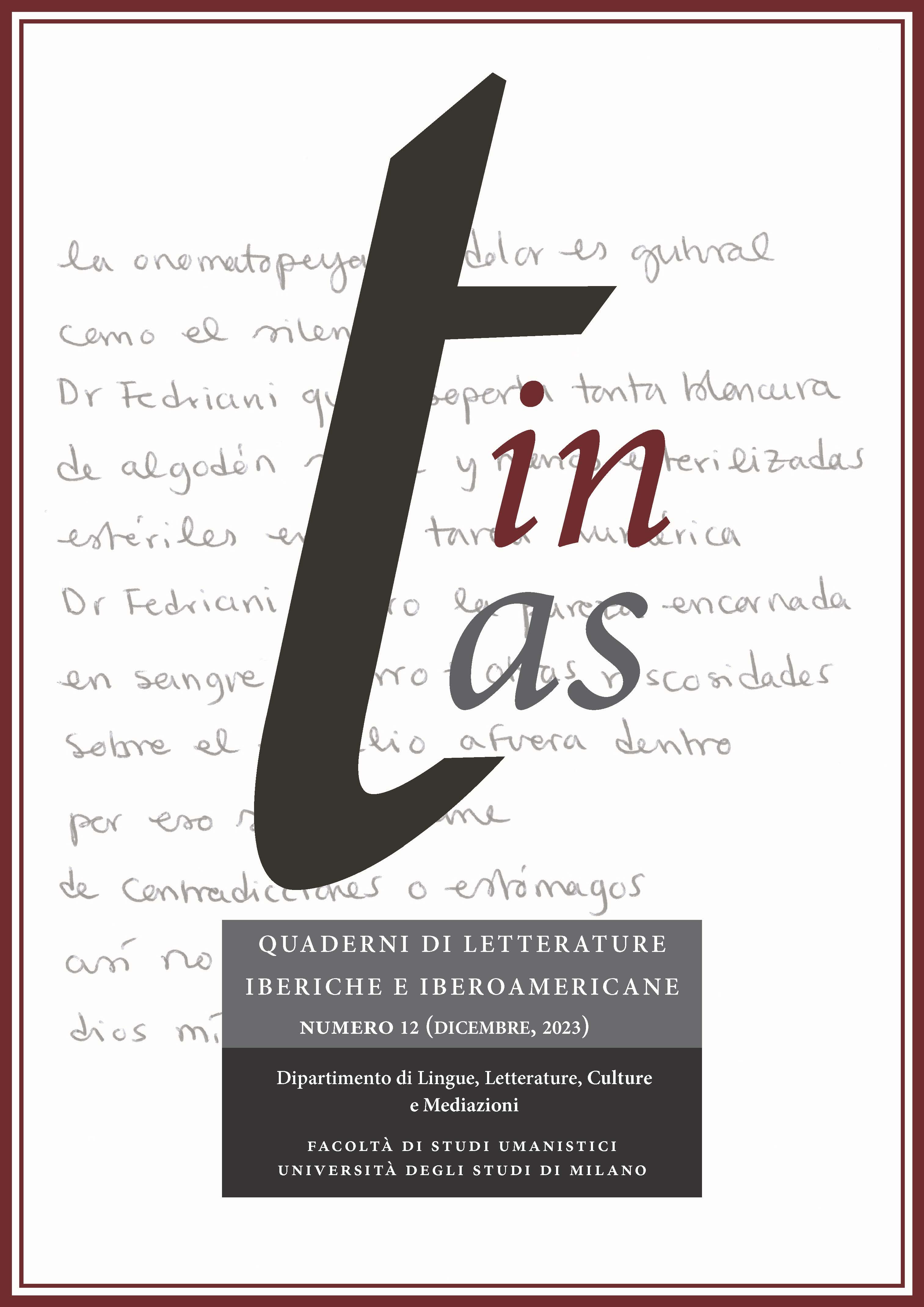Crisis y resistencia en la novela Ceniza en la boca (2022) de Brenda Navarro
DOI:
https://doi.org/10.54103/2240-5437/22414Paraules clau:
Brenda Navarro; Identity crisis; Racism; Resistance; OthernessResum
La literatura hispanoamericana ha tendido en sus temáticas, al menos en líneas generales, a recoger con perspectiva crítica diversas crisis. Especialmente frecuentes son los asuntos relativos a las crisis históricas, como las dictaduras, los conflictos sociales, los económicos o los políticos, pero también ha abordado las crisis a nivel individual, como las existenciales, las emocionales o las de identidad. Las siguientes páginas tienen dos objetivos fundamentales, el primero de ellos es analizar cómo los personajes principales de Ceniza en la boca (2022) de la mexicana Brenda Navarro se enfrentan a una profunda crisis identitaria al trasladarse a España. Los jóvenes hermanos protagonistas de la novela, mexicanos, son víctimas del racismo a su llegada al país, con el consiguiente impacto de este en la construcción de su identidad individual. El segundo de los objetivos es poner en valor cómo esta novela consigue dar una vuelta de tuerca al abordaje literario de la crisis de identidad, en la medida que además de ser el tema central de la historia es, también, una forma de resistencia ante el racismo que la ha provocado. Brenda Navarro invita en Ceniza en la boca (2022) a repensar la identidad desde escenarios más empáticos ante identidades diferentes a la propia y lo consigue con personajes complejos y multidimensionales que fomentan una comprensión matizada de la otredad. Finalmente, el acercamiento metodológico está basado en los nudos rectores de los estudios postcoloniales.
Descàrregues
Descàrregues
Publicades
Versions
- 2024-02-08 (2)
- 2024-02-08 (1)



